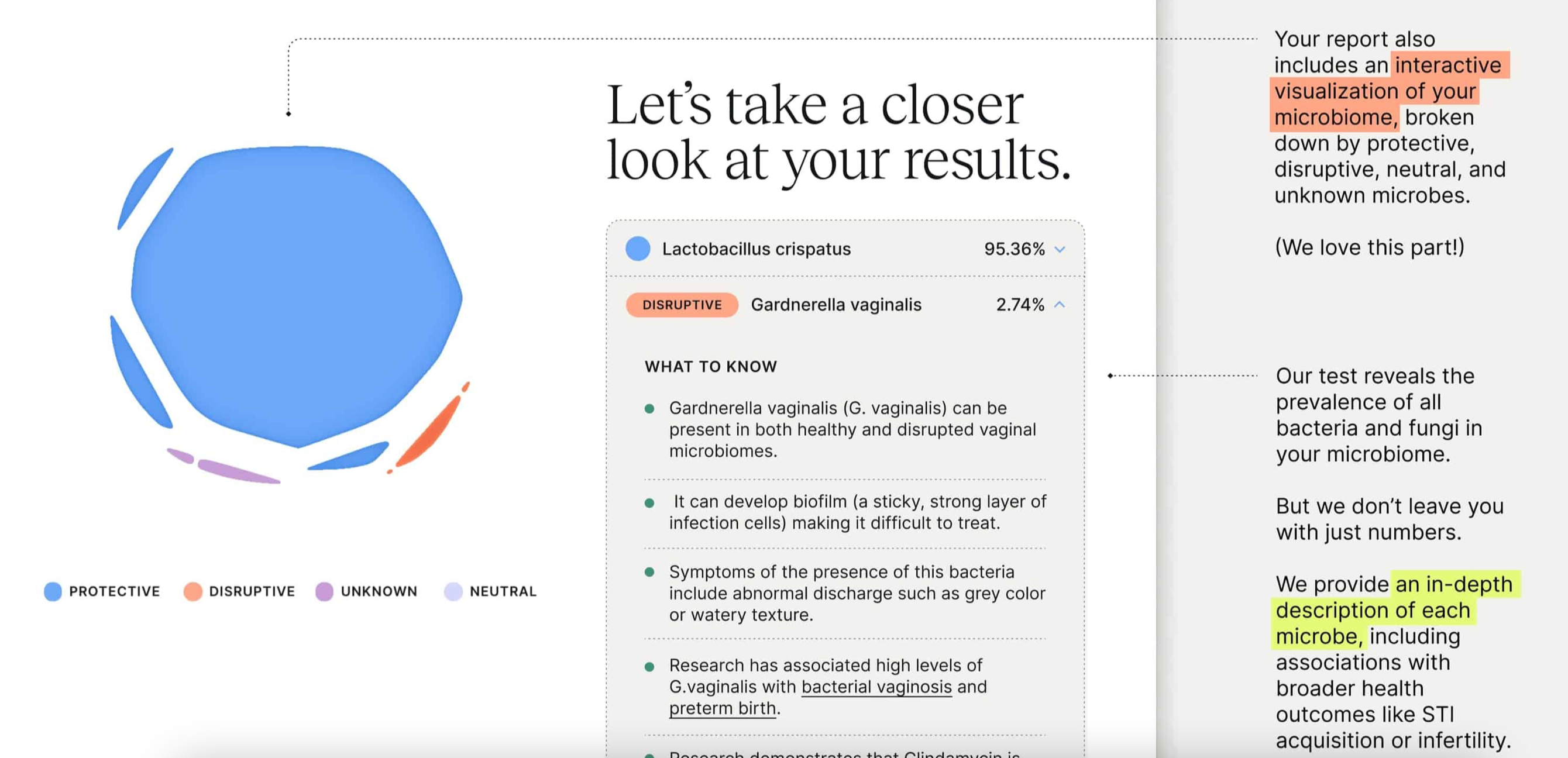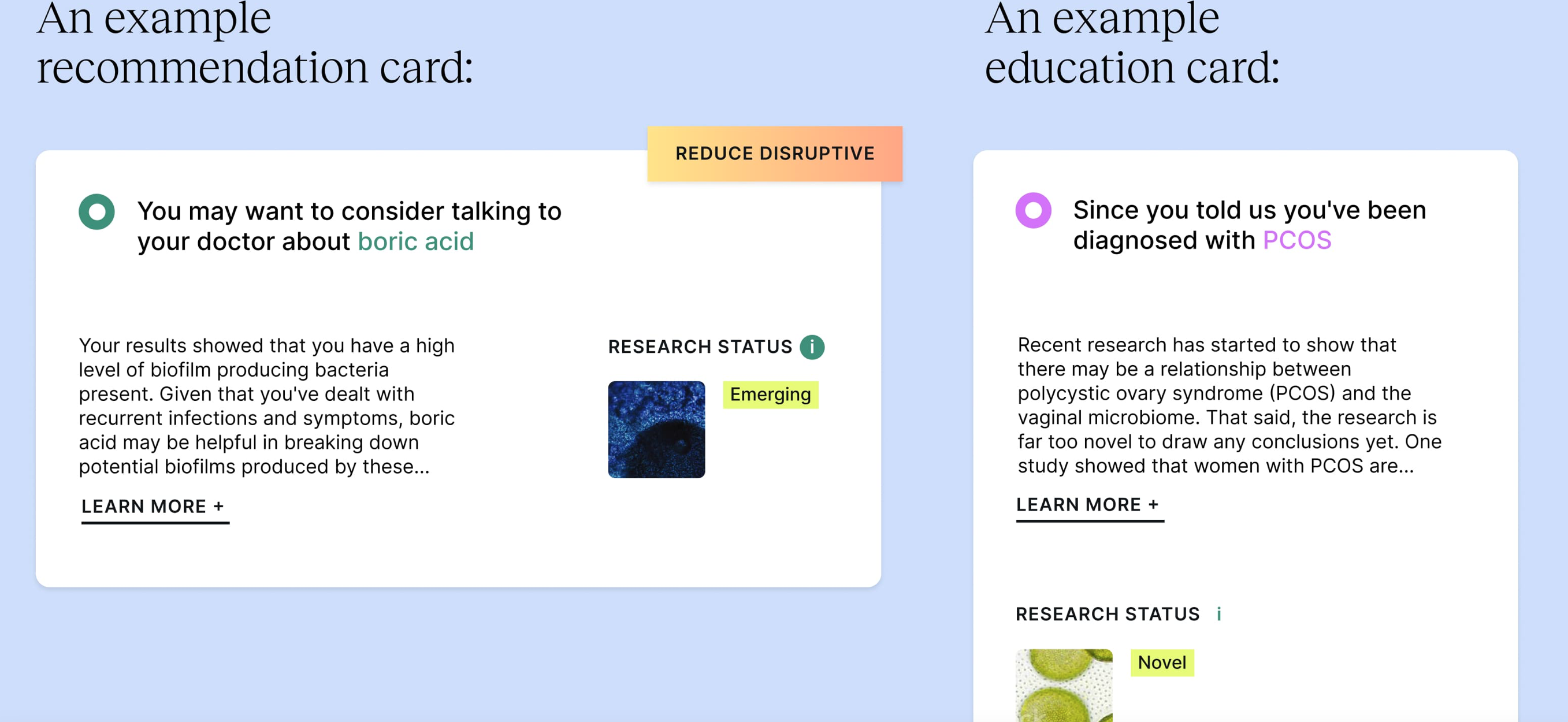
The following is a transcript of an interview by Oriana Kraft with Priyanka Jain, Co-Founder and CEO of Evvy, an at home vaginal microbiome test designed to help get to the root of recurrent vaginal infections and other symptoms.
This is Part 4 of a series of Deep Dives on Sex Specific Topics in Medicine, in the aim of connecting students with research being done in the field.
Hi Priyanka! Can you tell me a little bit about your background and how it is you came to work in the field of women’s health?
I come at this from the data science and AI side. My life-long interest has been in making life better for women across the globe. I started in the non-profit sector and worked with the UN to launch the ‘Girl Up’ campaign. I’ve done a lot of work around women’s access to education and healthcare. But it’s only when I started to look at the percolation of data into the healthcare system, that I really began to notice how the algorithms we use don’t take into account all the ways in which the female body might be different.
On a personal level, I became curious about how we could use data to make informed decisions about women’s health. In particular, I wanted to investigate which biomarkers of health are sitting in the female body unused – biomarkers that we never tracked or measured because we never studied women. There are many things that the female body does uniquely that could be incredible measurements of women’s health. These biomarkers could help us predict diagnose, treat or stratify the risk of disease as it manifests differently in the female body. The problem is we don’t typically use any of those biomarkers because they don’t exist in men so we never studied them.
 How did you settle on the idea of the vaginal microbiome?
How did you settle on the idea of the vaginal microbiome?
I interviewed 200 researchers, scientists, doctors, women, investors, founders and I just kept coming back to the vaginal microbiome as an area that was in desperate need of innovation – which was shocking to me because I didn’t even know the vaginal microbiome was a term. And yet, it turns out the vaginal microbiome is the cause of a lot of the most common reproductive health issues women face. The number one reason women go to the OBGYN are vaginal infections: yeast infections, UTIs, bacterial vaginosis. It’s incredibly prevalent. Simultaneously, I couldn’t believe the amount of research coming out saying the composition of the vaginal microbiome is associated to everything from fertility challenges, to cervical cancer, to preterm birth, to STI acquisition. It made me wonder why I don’t have access to that type of information about my own body and, more importantly, why no one in the healthcare system was using this data to make better decisions about my health.
It just became clear to me that the vaginal microbiome was the most obvious starting point to make a dent in women’s healthcare experience. Consumers want to be able to access the information because of the vaginal microbiome’s link to UTIs and yeast infections. And the vaginal microbiome also provides value on the provider side because of its link to some of the most expensive health outcomes for women.
How do you see Evvy as being a part of helping bridge the gender data gap?
I firmly believe that women can be a part of our own solution. We can move towards bridging the data gap by giving consumers access to this type of information about themselves. That’s how it becomes common place to have this sort of information in the first place.
Are you finding that women understand the value of testing their vaginal microbiome?
Definitely. Recurrent UTIs, yeast infections, STDs – these are all things women have struggled with for so long but there’s never been a brand or a movement attached to it before. There are so many women who have been dying for answers, living in these Facebook communities where it’s the blind leading the blind and there’s a lack of answers. Now that they have the possibility to get real answers they definitely understand the value of being able to test themselves.
 And Evvy gives women actionable insights to work off, right? How does that work?
And Evvy gives women actionable insights to work off, right? How does that work?
Most of our customers take the vaginal microbiome test every three months. They track what they do in-between for themselves. They track things like whether they had a new sexual partner between tests, whether they tried out a new diet, used a new probiotic. At Evvy, we’re able to show them; ‘you started here’, ‘this is what you did in between’, ‘this is where your vaginal microbiome is now’. We can also then show other users what worked and didn’t work for users who started out in a similar place to them.
What sort of information can Evvy provide to women going through menopause?
One of the main things that happens in menopause is a decline in estrogen. As estrogen goes down so does glycogen. Glycogen is what feeds a lot of the protective bacteria in the vaginal microbiome. As a lot of women enter menopause they get vaginal infections for the first time because they’re losing a lot of the healthy bacteria in their vaginal microbiome. At Evvy, we can help women suffering from vaginal infections during menopause to understand whether the reason they are having an increase in vaginal infections is that the number of their lactobacilli is going down and if it is how they can promote an increase in the quantity of lactobacilli they have.
_________________________________
Innovations like Evvy’s at home vaginal microbiome test is why we need Femtech. (And a FemTech Summit like this one of course). Want to hear more about how the vaginal microbiome could be the key to cracking women’s health? Sign up for the 2022 femtech conference here.